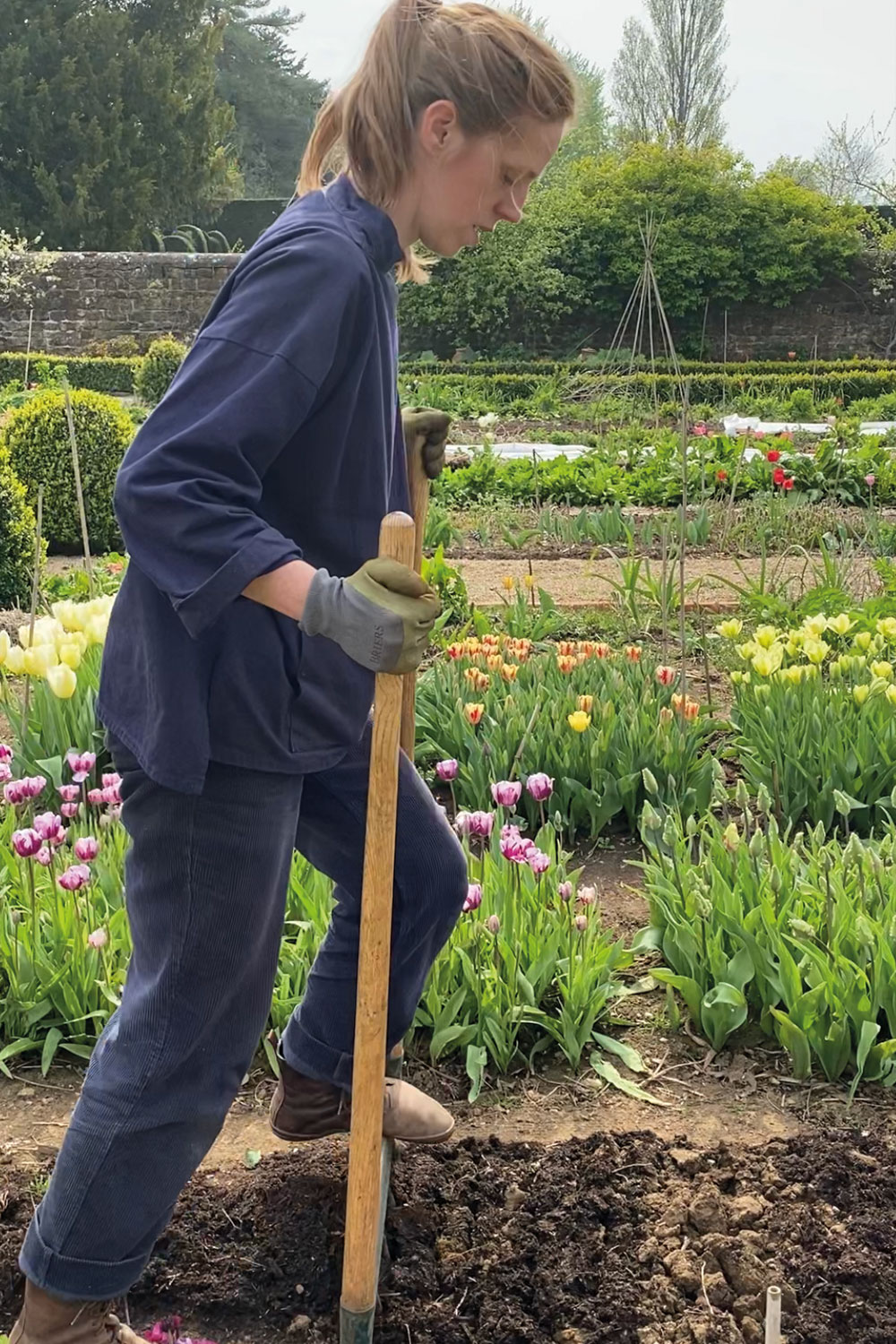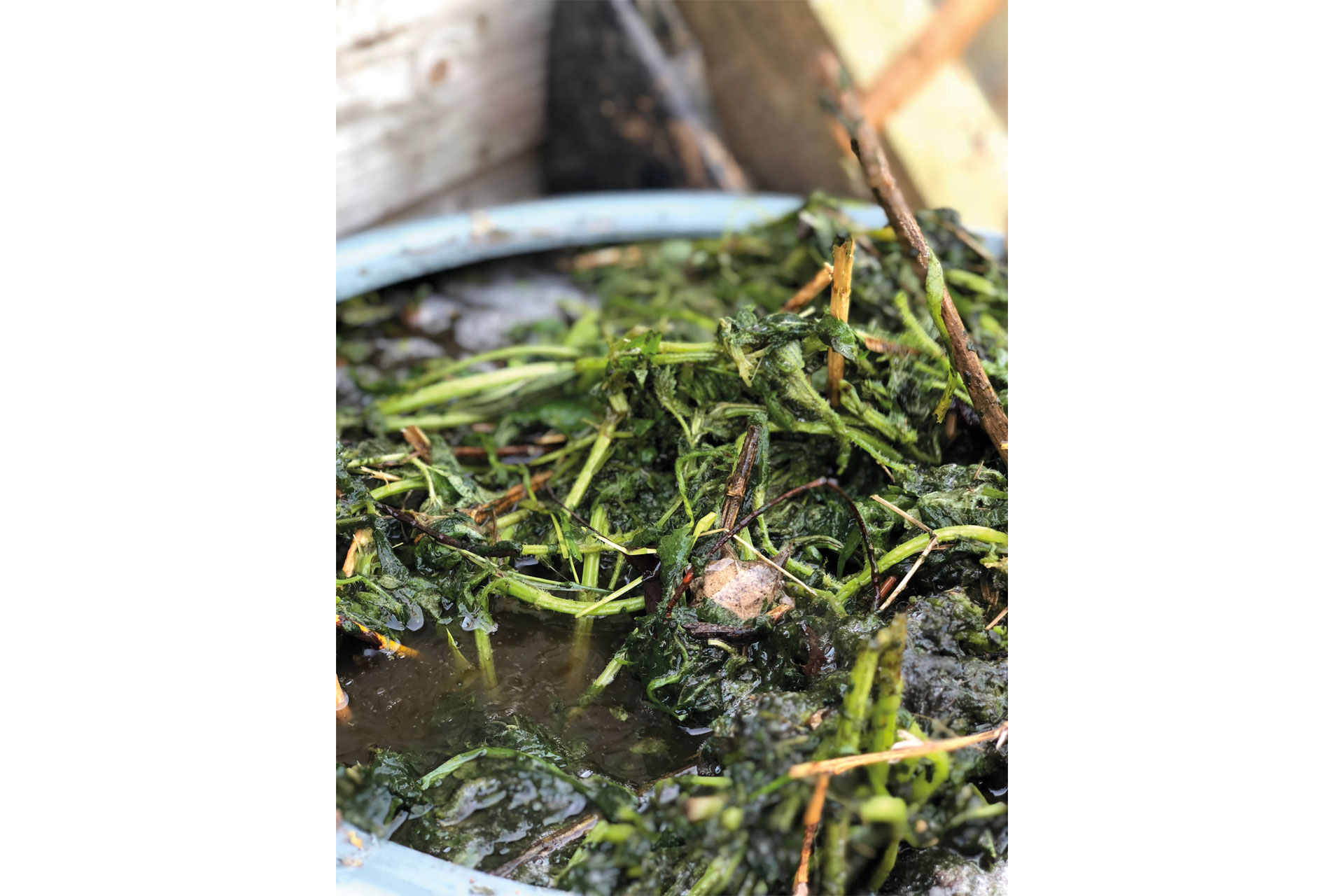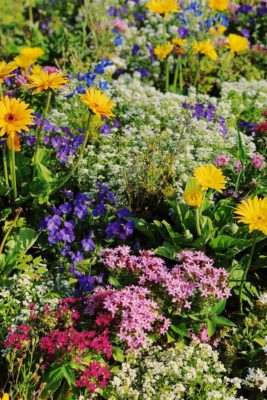
Gardening Hack: Five Teas To Keep Your Garden Soil Healthy
By
1 year ago
Water your plants better
Seeking healthier soil for a better garden? These teas will help your flowers or vegetable patch flourish. Carole Annett sits down with the Land Gardeners, Henrietta Courtauld and Bridget Elworthy, who devised these soil teas featured in their book, The Land Gardeners: Soil To Table (£45, available here).
Meet The Land Gardeners
‘Our children were at nursery school together,’ says Henrietta Courtauld as she explains how she and Bridget Elworthy met, ‘so rather than discussing playdates, we started discussing plants and soil. And that was the beginning of it.’
As well as selling cut flowers – they were renowned for big, blousy, Constance Spry-inspired bouquets – the women spent 15 years researching soil, along with soil scientists, to make a microbial compost with the aim of getting chemicals off farmland. Their resulting Climate Compost is like a probiotic for soil. Filled with microbes, it saw organic matter leap from five to 12 percent in their own horticultural garden and became the subject of a global trial helping to regenerate a 2,000-acre Northamptonshire arable farm without using chemicals. ‘There’s more life in a teaspoon of soil than people on the planet,’ explains Bridget. ‘That’s quite a big thing to get your brain around – the whole kingdom under the soil is connected to the kingdom above. And the more biodiversity you have, the more you can grow. If you have good soil, you’re going to have a strong plant, which means good pollen. Then bees are going to make great honey and also pollinate food for you properly.’
Whether you have a window box, handkerchief-size garden or acres and acres, having good soil helps not only with what you want to grow, but also allows birds and insects to thrive. Climate Compost is available at thelandgardeners.com
Five Teas For Healthy Garden Soil

Weed tea
To make these teas it is best to use unchlorinated water as chlorine harms the microbes. Either collect rainwater, attach a carbon filter to your hose or leave a bucket of tap water outside overnight. Use teas straight away on a dull day or in the early morning or the evening to avoid bright sunshine as the UV light kills the microbes. Spray teas onto the leaves and around the base of the plant with a watering can.
1. Compost Tea For Soil
You’ll need: a handful of Climate Compost inoculum or similar microbial compost, and five to seven litres water. Place compost into a watering can of water and ‘dynamise’ or stir so you create a vortex in the middle until the compost is mostly dissolved. The microbes are aerobic so by stirring this way you incorporate air into the process.
2. Weed Tea
You’ll need: an old pillowcase or muslin bag, large container of water, and a diverse selection of weeds including roots, stems and leaves. (The more varieties the better, to add diverse nutrients and minerals.) With the leaves and stems of each plant, ideally these are harvested when just about to flower as this is when they are most nutrient dense. Place muslin bag of leaves into a bucket of water and leave for three weeks. Dilute approx. one part tea to seven parts water in a watering can (it should be the colour of a weak cup of tea) and water onto your plants.
3. Comfrey Tea For Gardens
You’ll need: comfrey leaves (Bocking 14 variety). This is wonderful for all garden plants, especially for fruiting crops like cucumbers and tomatoes as it is rich in potash and trace elements, such as boron, which these plants need to flower and set fruit.
4. Nettle tea
You can use nettle tea bought from a shop or homemade (simply add nettles to water and boil like normal tea). This nutrient dense tea is good for healthy garden soil, plants and even people – full of iron, magnesium, calcium, and potassium. Use for a nutrient boost or when plants are stressed from hot or cold weather or to stop leaves yellowing with chlorosis.
5. Mint Tea for Pests
You can again use shop-bought tea for this. Mint tea will deter flying insects such as aphids, whitefly and grape worm. You need 100g mint leaves for one litre water. Soak leaves in tepid water outside for three to four days. Dilute one part tea to four parts water.






